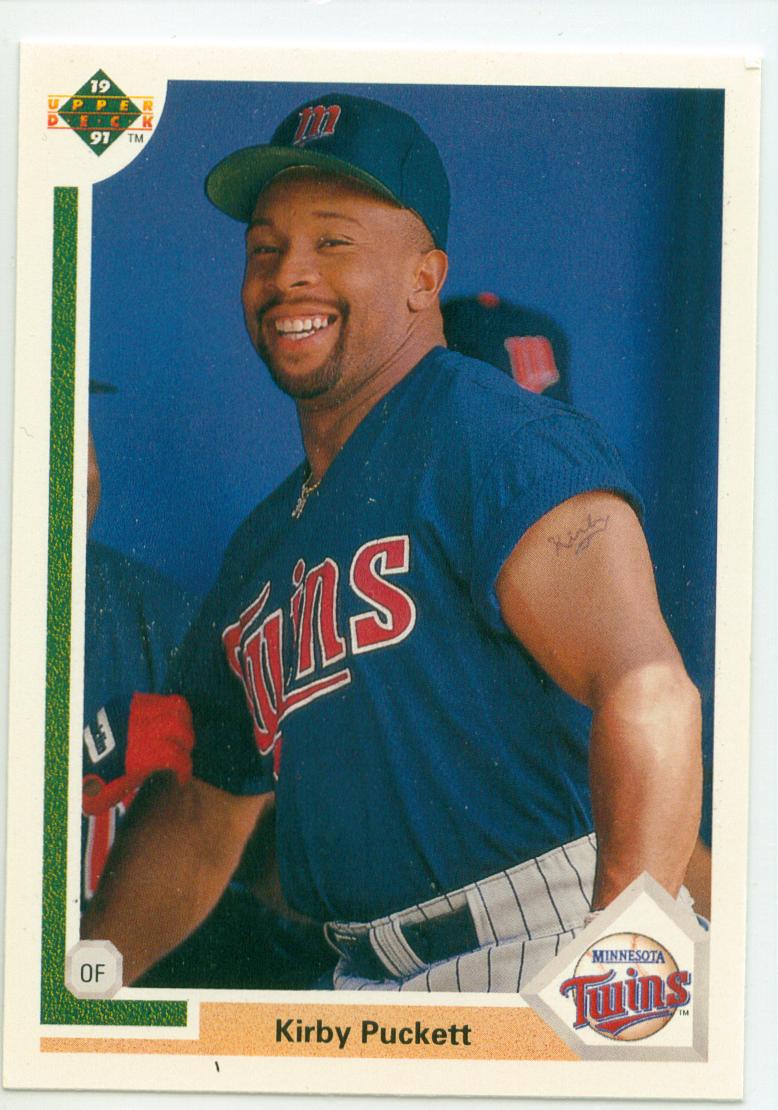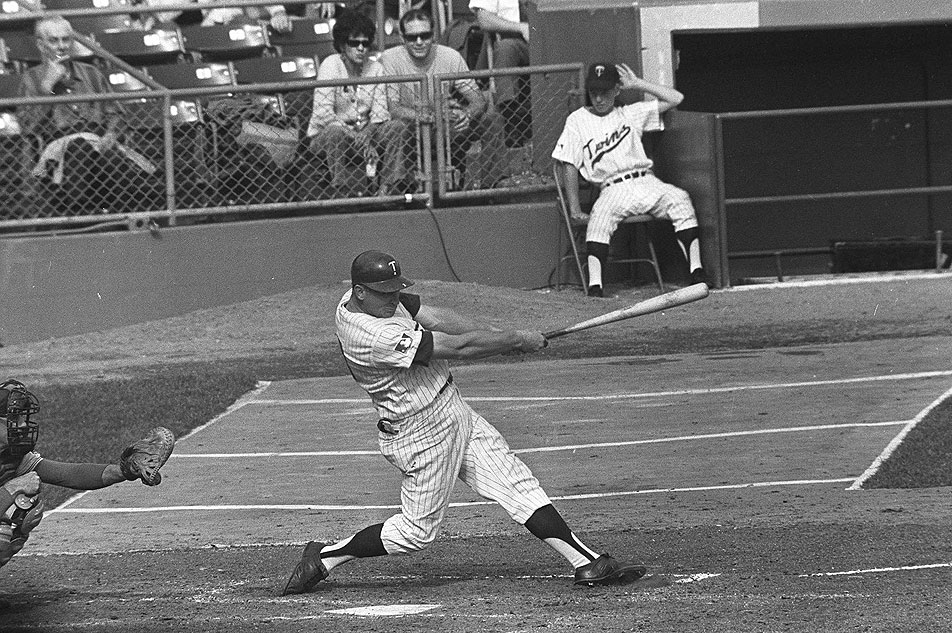David Heiller
How do
you define baseball? If you are a six-year-old girl, it’s by the length of the
licorice, and the taste of the pop, and Kirby Puckett’s first grand slam.
I took
Malika to her first game last Friday. Before the game, I tried to engage her in
Baseball Talk (BT). This is the
second most boring language in the world (behind the mating noise of a
three-toed ground sloth). You say things like, “Wow, Puckett has seven hits in
his last 12 at bats.” And your friend answers, “But Lieus can’t hit worth beans
with men in scoring position.” Boring.
Fortunately
Baseball Talk on Friday was tempered by Kid Talk (KT), which has all the logic of a computer that just fell off a
desk. It almost makes
sense. Here are some samples of our dialogue, which I jotted down on the back
of my scorecard.
KT: Who’s
Larkin?
BT: You
know, Gene Larkin.
KT: Who’s
Larkin? What’s a Larkin, Dad?
KT: I
see Kirby—the guy cleaning the area out there (around the pitcher’s mound).
BT: No,
that’s the groundskeeper.
KT: How
many more minutes (till the game starts)?
BT: Twenty
KT: You
already said 20.
BT: No,
I said 30.
KT: Oh.
KT: I
want pudding.
BT:
Where’s pudding?
KT: That
guy’s holding it.
BT: That’s
not pudding. That’s beer.
KT: Oh.
KT: I’m hungry.
BT:
(Silence.)
KT: I’m
hungry.
BT:
(Silence.)
KT: I’m
hungry.
BT:
(Silence.)
KT: I’M
HUNGRY.
She
talked about a zillion other things too. She admired in a loud voice a woman’s
earrings, which were shaped like little baseballs. (Now THERE’S a good birthday
present for Cindy.) She checked out ladies’ purses, and told me (in a loud
voice) every time she saw one she liked, or one that resembled her own 47
purses.
 |
| Noah and Malika working on their Twins imitations |
She ogled
a baby across the aisle, a kid all of one month old, who was passed between Mom
and Dad while they ate pretzels and drank beer.
In
between talking, Malika ate. It was a miracle. Her stomach normally holds half
a peanut butter-and-jelly sandwich, max. But at the game, where food prices are
inflated as much as the stadium, she consumed a can of orange soda, three
strips of button candy on paper, 67 peanuts, and a licorice rope two feet long.
She
finished it all by the fifth inning. “I want a hot dog,” she said. Sure, for another $3, I
thought. I put my foot down (on a carpet of peanut shells) and said no. But not
until I’d bought myself a glass of “pudding” for $3.25.
We did
manage to talk a little baseball, thanks to the idol of every kid who plays
catch in Minnesota, Kirby Puckett. Kirby came through. He moved from
groundskeeper to hero when he came up with the bases loaded in the fourth inning,
and lined a homerun over the right-centerfield fence. We stood and roared with
26,000
other fans. Malika gave me a
high-five and hollered, “A grand slam!” I didn’t even know she knew what a
grand slam was, but she yelled it. I heard her. There’s hope for her yet.
We didn’t
quit clapping until Kirby stepped out
of the third base dugout and tipped his cap. A true hero,
for the umpeenth time. Then at the top of the fifth, the crowd rose again as
Kirby ran out to center field. The scoreboard announced that it was his first
grand slam in the majors. It showed a replay, then a close-up of Kirby, who
modestly doffed his cap again, and gave it a short swirl to the crowd.
My spine
tingled. It was a special moment, one I’ll remember for a long time. Malika won’t. But I’m glad she
was there with me to share it.
The Twins
ended up winning, 17-5. But they could have LOST 17-5 and Mollie wouldn’t have
known the difference. She had her food and her questions and her purses and
earrings and her Kirby
and her Dad. What more to baseball is
there?
When we
were leaving, she showed a new dance step to anyone who cared to watch,
something between the Radio City Rocketts and some Nazi Storm Troopers. Then
she tiptoed down the sidewalk, missing every crack for two blocks in honor of
her mother’s back.
In the car,
she made the predictable announcement: “I don’t feel so good.” Stomach hurt? “Uh-huh.”
But no disasters would end this adventure. The car rolled northward through the
night, and the dash light soon wrapped a sleeping girl in its warm, green glow.
The next
morning, I asked Mollie what she thought of the game. “I just loved it,” she
said dramatically.
“What’d
you love about it?” I asked.
She
shrugged her shoulders. “The Twins won. I want to go to another game next time.”
Sounds good to me.












